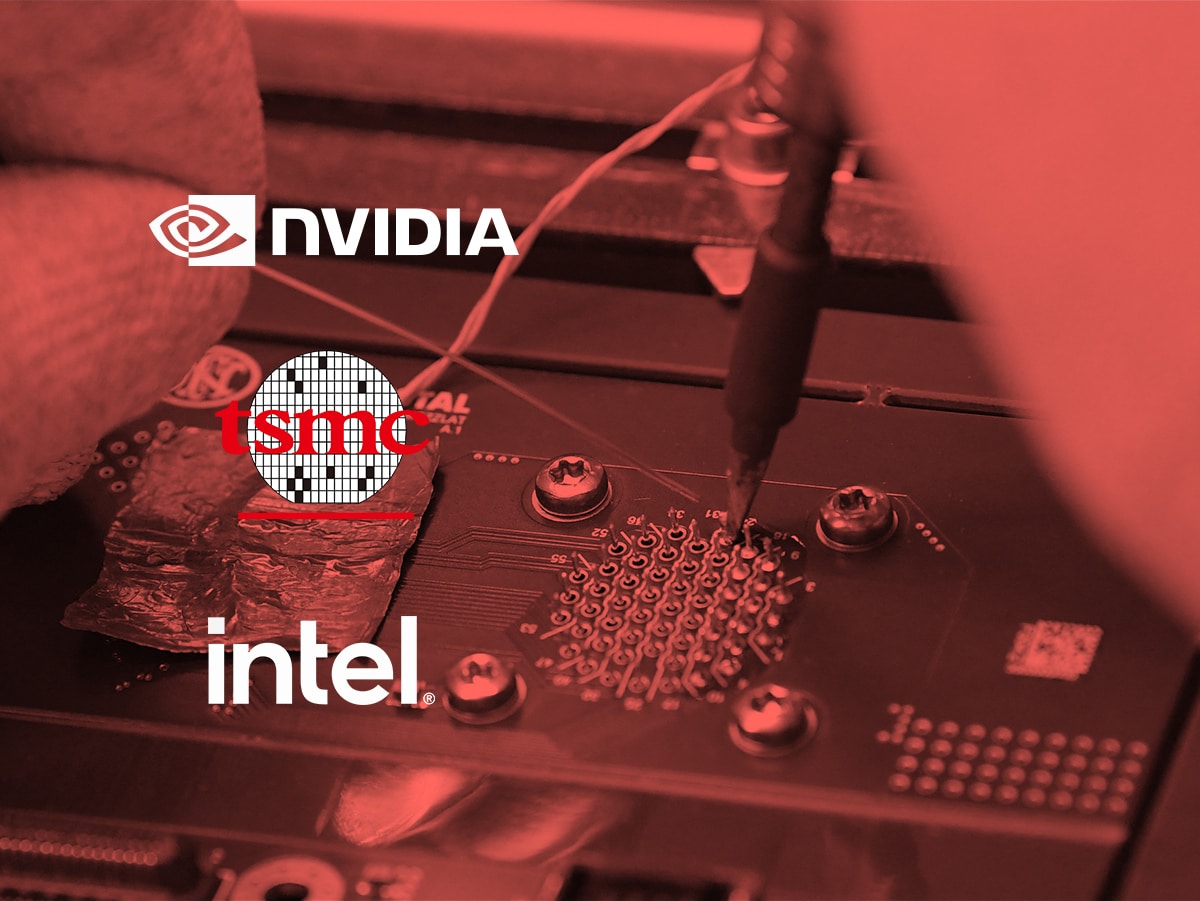Semiconductor manufacturers Intel and Nvidia have been on edge as Taiwan and TSMC get caught in the crossfire of the US-China row. It’s the latest headwind to hit the industry, which has already been battered in recent weeks and months. What does this mean for the semiconductor shortage?
The chip crunch that has blighted global electronics supply chains since the coronavirus pandemic still shows no signs of abating, putting further pressure on semiconductor stocks Taiwan Semiconductor Manufacturing Company (TSMC) [TSM], Intel [INTC] and Nvidia [NVDA].
One outlook from Glenn O’Donnell, a vice president research director at advisory firm Forrester, predicts the shortage in semiconductor processors to last until 2023. He told CNCB that “demand will remain high and supply will remain constrained”.
Meanwhile, Ondrej Burkacky, senior partner at McKinsey’s Semiconductor Practice, told IT Pro podcast that it could drag on to 2024 or even 2025 based on the fact that it takes a minimum of three years to set up a new semiconductor facility.
Geopolitical tensions weigh on TSMC
Flaring tensions between the US and China have underlined the dangers of the global supply chains relying on TSMC.
US House speaker Nancy Pelosi’s early August visit to Taiwan had fanned tensions with China. There have been suggestions that China could seize TSMC if the US were to impose sanctions on it. Chairman Mark Liu has dismissed the threat in a rare interview with CNN.
Geopolitical risks are an overhang, but Morningstar equity analyst Phelix Lee still views TSMC favourably. However, Lee believes there could be headwinds from the US CHIPS Act, which could make its valuation less attractive. The CHIPS Act could potentially lead to the restricting of foreign investments into certain countries and of cargo shipments into China.
“These supply chain disruptions as well as the recent demand downside are more pressing issues to any possible downgrades for TSMC,” said Lee.
As of 30 August, the TSMC share price is down 6.4% in the past month and down 30.5% year to date.
Intel Q2 earnings show signs of struggle
When Intel delivered Q2 earnings at the end of July, it revealed pressures from supply chain issues. Revenue slumped 22% year over year, missing the analyst consensus by a wide margin.
Intel CFO David Zinsner was upbeat in an interview with CNBC. Spending by small- and medium-sized businesses may have been lower but spending by enterprises has remained robust. “We do think we’re on the bottom,” Zinsner said.
Analysts don’t echo his confidence, however. Bernstein’s Stacy Rasgon said the earnings were the worst he had seen in his career. “While some investors could potentially see a kitchen sink in the results, it seems more likely that things are circling the drain,” Rasgon wrote in a note to clients.
Bernstein reiterated an ‘underperform’ rating and lowered its price target from $35 to $30, implying a downside of 7.7% from the 29 August closing price of $32.51.
The Intel share price has dropped 10.2% in the past month, falling 35.7% year to date to 30 August. The stock had recorded a 52-week low of $32.81 on 29 August.
Nvidia sees falling demand for gaming chips
Falling demand for gaming chips amid impact on consumer spending has created “challenging market conditions,” according to CFO Colette Kress. Gaming revenue fell 33% year over year to $2.04bn in Q2 reported at the end of August, although this was offset by the data centre business jumping 61% to $3.8bn.
Nvidia also offered weak guidance for Q3 that was far lower than Wall Street had been expecting. It sees revenue falling between $5.78bn and $6.02bn versus a FactSet consensus of $6.91bn.
Despite this, analysts are bullish on Nvidia’s prospects. “We feel like the October quarter should mark the revenue bottom for Nvidia,” wrote Piper Sandler analyst Harsh Kuma in a note seen by MarketWatch. UBS analyst Timothy Arcuri is largely in agreement, writing that the correction in gaming is “largely in the rear-view mirror,” reported CNBC.
The Nvidia share price dropped 8.9% during the week ending 26 August and is down 47.4% year to date (through 30 August). Although analysts lowered their price targets across the board following Q2 earnings, the consensus of $224.50 implies an upside of 31.1%.
Disclaimer Past performance is not a reliable indicator of future results.
CMC Markets is an execution-only service provider. The material (whether or not it states any opinions) is for general information purposes only, and does not take into account your personal circumstances or objectives. Nothing in this material is (or should be considered to be) financial, investment or other advice on which reliance should be placed. No opinion given in the material constitutes a recommendation by CMC Markets or the author that any particular investment, security, transaction or investment strategy is suitable for any specific person.
The material has not been prepared in accordance with legal requirements designed to promote the independence of investment research. Although we are not specifically prevented from dealing before providing this material, we do not seek to take advantage of the material prior to its dissemination.
CMC Markets does not endorse or offer opinion on the trading strategies used by the author. Their trading strategies do not guarantee any return and CMC Markets shall not be held responsible for any loss that you may incur, either directly or indirectly, arising from any investment based on any information contained herein.
*Tax treatment depends on individual circumstances and can change or may differ in a jurisdiction other than the UK.
Continue reading for FREE
- Includes free newsletter updates, unsubscribe anytime. Privacy policy





